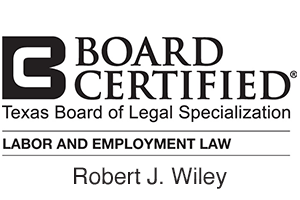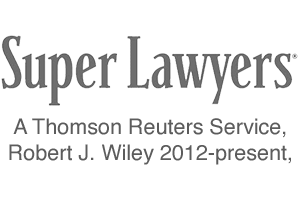in Austin, Texas
English Only Rules
Austin Lawyers for Victims of National Origin Discrimination
Federal and Texas laws prohibit workplace discrimination on the basis of national origin. If you are affected by English only rules in a Texas workplace, you may have grounds to assert a claim. At Austin Employment Lawyers, P.C., our Austin national origin discrimination attorneys can evaluate the facts of your particular situation and may be able to help you fight for justice.
English Only Rules May be Illegal
Title VII of the Civil Rights Act of 1964 and Texas Labor Code Chapter 21 prohibit national origin discrimination. Title VII is enforced by the Equal Employment Opportunity Commission (EEOC), and the EEOC issues guidance related to many nuances of the law. It has stated that English only rules in the workplace violate Title VII unless the employer is able to show that the rule is justified by a business need.
An employer can only require employees to speak English at all times on the job if it can show that speaking only English is necessary to do business, employees are told when they need to speak English only, and employees are advised of the consequences for violating the rule. When an employer makes an adverse employment decision based on an employee breaking an English only rule, there may be national origin discrimination unless the employer can show that all three of these conditions have been met.
A rule that requires employees to speak English in the workplace at all times, no matter the context and including rest breaks or lunch breaks, is rarely justified. For example, suppose that your coworker and you typically speak Spanish to each other on your lunch break, and your employer asks you to speak only English simply because it does not like hearing Spanish. In such a case, it is unlikely that the employer is justified by business necessity.
On the other hand, there are situations in which an English only rule may be justified, and a court will not consider it national origin discrimination. An English only rule could be critical if an employer needs it to make sure that business operations are safe or efficient. For example, you may be required to speak only English to other coworkers who speak only English. You may be required to speak English in emergencies or to promote safety on a factory floor. You may also be required to speak English if you are in a cooperative work environment. For example, if you work in a lab working with hazardous materials, and several of you speak Vietnamese while your supervisor does not, the employer may be justified in requiring you to speak English while engaged in your work tasks for safety purposes.
Title VII and Texas Labor Code Chapter 21 apply to private employers with 15 or more employees, as well as state and local government employees. If you believe that you are unfairly subjected to English only rules in a workplace covered by these laws, you should consult an experienced attorney. There are strict time limits to file a charge or claim with the EEOC or the Texas Workforce Commission.
The damages that you can recover vary depending on the situation. While you can be reinstated into a particular position as a remedy, reinstatement may not be the best remedy if you were wrongfully terminated for violating English only rules because the employment relationship may be too strained to work together productively. You may be able to recover money damages, including back pay, out-of-pocket expenses, front pay, and emotional distress damages.
Hire a Knowledgeable Austin Attorney to Enforce Your Workplace Rights
If you are concerned about English only rules in a Texas workplace, you should consult our experienced Austin lawyers. Austin Employment Lawyers, P.C. represents people who need an employment discrimination lawyer in cities such as Georgetown, Round Rock, Cedar Park, Pflugerville, Leander, Del Valle, Kyle, San Marcos, San Antonio, New Braunfels, and Fredericksburg. Call us at (512) 271-5527 or use our online form to set up an appointment.







